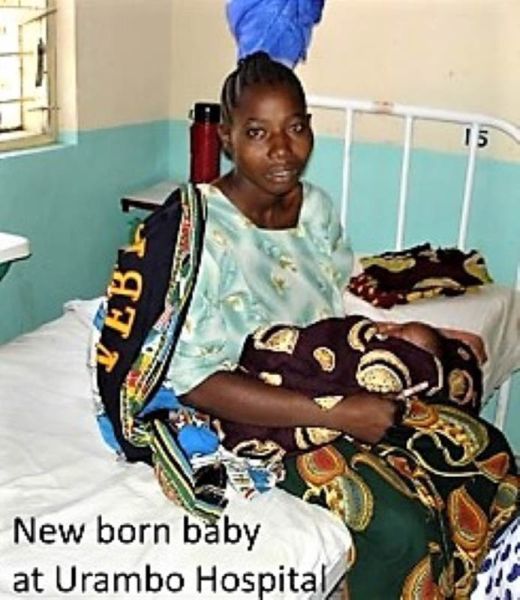Urambo District Hospital
In charge at Urambo District Hospital is Dr Kheri Kagya, a most impressive man. The laboratory is always busy, testing for syphilis, HIV, malaria, haemoglobin level, TB, liver function and blood cell count.
Medical Electives 2017 Update

In April/May 2017 three UK doctors from UCL spent their 'elective' at Urambo Hospital providing much needed extra support there, as well as gaining hugely themselves from the experience.
FUM organised their time in and transport from Dar es Salaam on arrival from UK. They stayed at nearby Urambo FDC, hosted by the long-standing housekeeper Mama Morro who is well used to overseas visitors such as FUM Officers Jo and Richard in November 2016.


Read Adam and Jane's reports of their 2017 Elective Placement
Urambo Hospital 2017 Update
In summer 2017 the hospital benefited from two significant developments:
- Three UK doctors spent 6 weeks at the hospital in April/May during their 'medical elective' placement arranged by FUM. They stayed in Devon House at nearby Urambo FDC. The hospital is understaffed and the three provided invaluable 'extra hands' said Dr Kagya the District Medical Officer. It was also a potentially life-changing experience for the doctors and two stayed on in Tanzania for several weeks. Read their report.
- Maternity delivery beds Thanks to a substantial donation from Cranbrook School, with a top-up from FUM supporters, two much needed delivery beds were bought locally by the hospital, nearly doubling the current three beds.


Urambo Hospital 2016 Update
FUM chairman Richard Pratt and Jo Taylor, responsible for medical matters, visited in November 2016. Although Dr Kagya had been operating until 3am the night before he found the time to meet with them, talk about his hospital and even request that FUM considers taking on up to three Dispensaries. This is because since the new District of Kaliua has been formed FUM no longer supports any dispensaries in Urambo District. It emerged that a District Hospital should have a team of 23 medical officers whereas Urambo has only four - no wonder they are so very busy.
In the labour ward there are 3 delivery beds serving 15 - 20 deliveries each day. FUM will be looking to find the funds to help buy some more delivery beds. The women and babies seen all looked to be well looked after but the small team of staff were working very hard.
Latest news
Three final-year medical students from University College London medical school will be working in Urambo hospital for their 'medical elective' placement in April/May 2017. As 'almost fully qualified' doctors their presence there should help take some of the pressure off the local doctors. They will stay in Devon House at Urambo FDC.
Urambo Hospital 2015 Update

The child health care clinic is open 3 days a week and generally sees 100 children at each clinic.
There is an active vaccination programme running, though 85% of the illnesses seen is malaria, and the paediatric ward said the most common illness they see is complicated malaria.
The HIV clinic runs an active programme which works to prevent transfer of HIV from mother to child. Patients visit this clinic monthly and receive good and free medication, provided by the government. The HIV clinic is open 3 days a week and usually sees 60 – 70 patients each day. Patients are reliant on their relatives to provide them with food and some care. There are only 7 delivery beds in the maternity ward and this can be insufficient some nights, though the staff here were very friendly and positive. The operating theatre appeared basic but clean. The elective day for operations is Tuesday with only emergency operations being done on other days.
The X-ray department works daily, mostly chest X-rays checking for TB linked to HIV, pneumonia, and also for injuries, many from road traffic accidents, a knock-on effect from the faster traffic on the tarmac roads. The laundry has 3 brand new machines but usually only one is working, mostly due to the lack of staff. There is a real lack of funds to pay these workers and the hospital tends to rely on retired people working for a very low wage.
Jo Taylor
FUM Clinics Liaison Officer
Medical Electives Report Dr Jo Minchin
For Jo's placement at Urambo Hospital she was attached to Dr Masimba, shown.
She stayed with Mama Kizinga then Principal at Urambo FDC and chose to walk to the hospital. She felt she had 'arrived' when passers-by started calling her "Mwanafunzi daktari" (student doctor) rather than the usual "mzungu" (white person).
She was intrigued by the arrival from Kilimanjaro District of the 'flying surgeons' who held a clinic for 60 patients and operated on 30 of them, all in the space of two hectic days.

